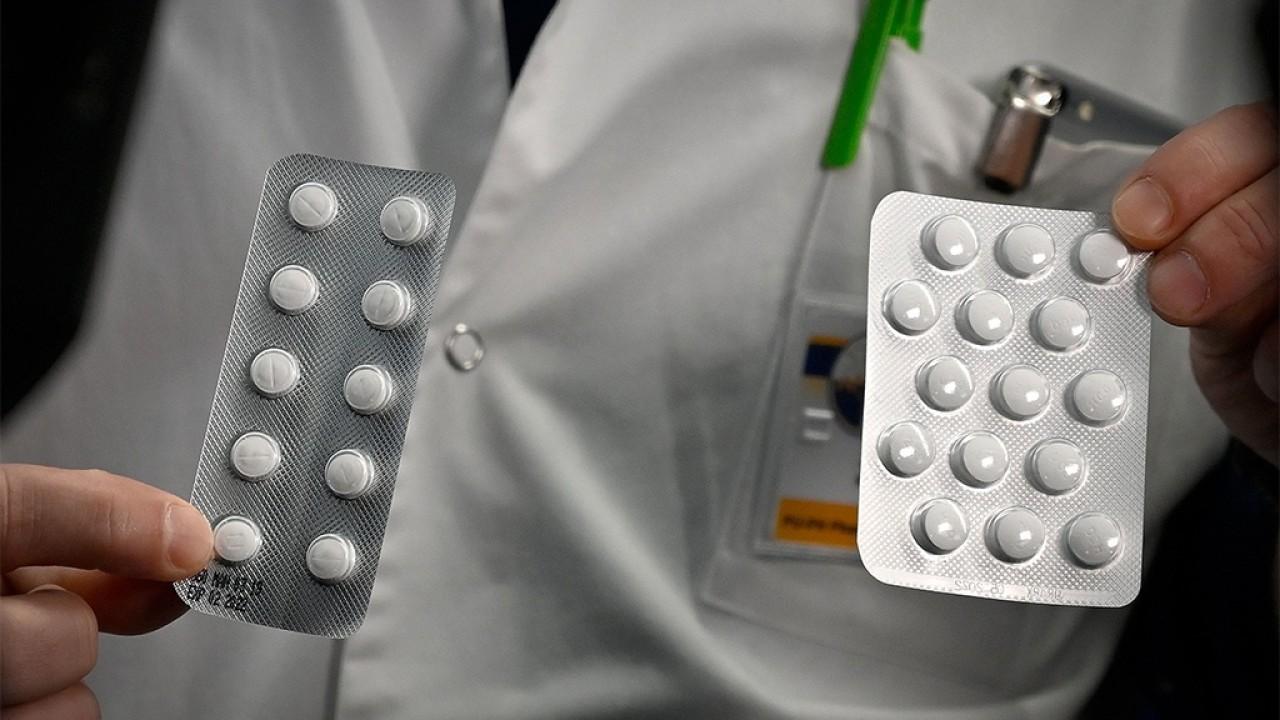Yes, drug manufacturing needs to return home, but don't jeopardize US leadership by going overboard
America still leads the world in biopharmaceutical innovation and manufacturing
The Latin phrase Primum non nocere meaning “first, do no harm” is part of the Hippocratic oath medical students recite during their symbolic white coat ceremony. Perhaps politicians and government officials proposing massive changes to the critical supply lines of medicines ought to take such an oath as well.
As states begin the herculean task of applying the President's Guidelines for Opening Up America Again in their localities, policymakers and economists are suggesting varying ways to propel our largely dormant commercial sectors forward, including the need to buy goods from American small businesses, farmers and manufacturers.
UNEMPLOYMENT, JOBS NUMBERS PROVE ECONOMY IS REBOUNDING. HERE'S HOW TO KEEP IT GOING: STEVE FORBES
Some industries, like agriculture and automotive, will certainly benefit from this sentiment. However, one unique sector where patriotic sentiment in the form of protectionist trade policies doesn’t make sense is for onerous domestic production provisions for critically needed prescription drugs and medical supplies.
In the midst of this chaotic, global public health pandemic, private enterprise and public sector institutions of all sizes have been tested to their limits and have shown the unparalleled value of America’s biopharmaceutical and manufacturing leadership.
Forcing new rules and manipulating our pharmaceutical supply chains, especially while COVID-19 and related lockdowns are still hampering our American way of life, will cause further harm to jobs and our economy, increase prices for consumers and ultimately diminish the quality and speed of care delivered by U.S. health care professionals.
The assertion that all prescription medications and medical devices should be domestically produced and manufactured, as some sort of protection against a global pandemic, is based more on angry emotions than any logical solution.
This pandemic, like all others, made apparent both supply and demand side uncertainty and volatility. As economic history has shown, however, America should not depend on any external supplier for essential products, including ourselves.
Take our nation’s energy renaissance made possible by President Trump. This triumph was not achieved by mandates and government production requirements. Instead it was secured as a result of regulatory reforms and tax policies that served as critical incentives for domestic production and manufacturing, which in turn made us competitive in the global energy markets.
Carrots, not sticks, prevailed; job and economic growth ensued. The key is creating an environment where American entrepreneurship can flourish.
KUDLOW SAYS NEXT CORONAVIRUS RELIEF PACKAGE NEEDS TO INCLUDE 'LONG-TERM' MEASURES TO SUPPORT ECONOMY
These are unprecedented times and the pandemic has exposed the vulnerability of the global economy to out-sized systemic shocks. Thankfully, the Trump administration is focused on healthcare resources simultaneously with preparing a quick pathway for economic recovery.
It is crucial that people can get back to work safely and soon. One of the most obvious adjustments needed is planning and preparing for the next global event by investing in and stockpiling shelf-stable medicines, personal protective equipment, and other essential life-saving materials.
President Trump is working to get this done and ensure Americans facing future emergencies are better equipped unlike his predecessors who left a depleted national inventory upon their departure.
WHAT HAPPENS TO YOUR UNEMPLOYMENT BENEFITS IF YOU REFUSE TO GO BACK TO WORK? However, policymakers should be careful not to make poor reactionary decisions that will put the American people at more risk. For example, the assertion that all prescription medications and medical devices should be domestically produced and manufactured, as some sort of protection against a global pandemic, is based more on angry emotions than any logical solution.
And predictably, with angered emotion comes inflammatory rhetoric and inaccuracies that spread like wildfire during uncertain times. This is the case with respect to the public’s perception that we are dependent on foreign countries like China for our prescription drugs.
Reason’s Eric Boehm unearths the reality behind some of the inflated numbers we’ve been hearing. Bottom line: while parts of many drugs are secured abroad, much more are made in the U.S., along with the European Union and the rest of the world.
GET FOX BUSINESS ON THE GO BY CLICKING HERE
Similar to the automotive, aviation, and information technology industries, the global pharmaceutical manufacturing pipeline is incredibly diversified. At the same time, according to the Food and Drug Administration’s tracking, there are twice as many prescription drug facilities in the U.S. as there are in China.
Add in the EU and rest of the world, and America still leads the world in biopharmaceutical innovation and manufacturing.
Ironically, ill-conceived protectionist mandates, socialist-style price control policies, and other heavy-handed intrusions into the marketplace could knock this hard-earned crown – and its critical economic, employment, and lifesaving benefits – straight off our own heads. Instead of sure-to-fail protectionist policies, let’s double down on President Trump’s own road map of regulatory reforms, tax cuts, and fair-trade deals like the USMCA to incentivize more domestic production. Much like we’ve seen in the energy and general manufacturing sectors, this will make production and manufacturing of prescription drugs and medical equipment in the U.S. even more attractive while ensuring critical global supply chains lines remain open.
Doing so would cause no harm and do a lot of good for America.Steve Forbes is Chairman and Editor-in-Chief of Forbes Media.
Kenneth J. Blackwell is the former Treasurer of the State of Ohio and a Board Member of the National Taxpayers Union.





















